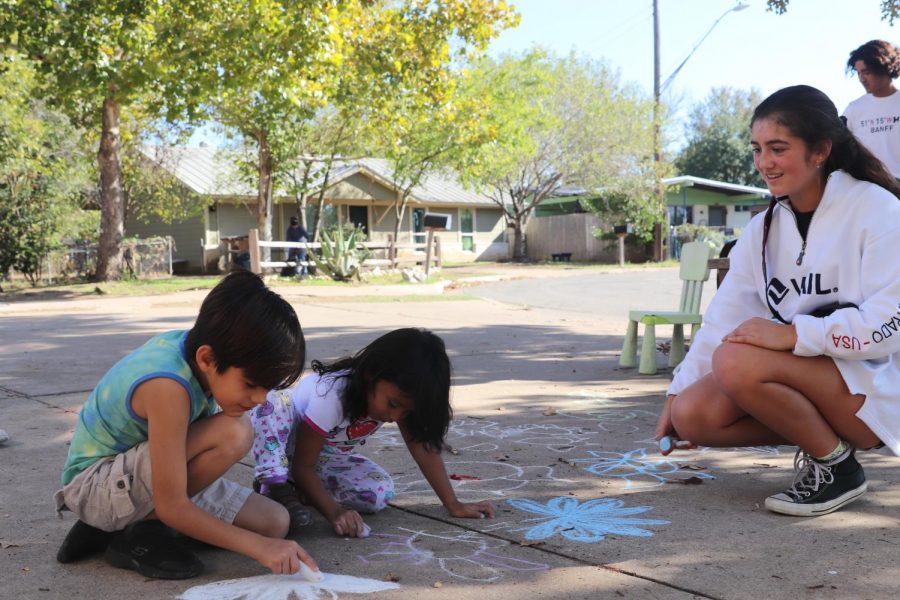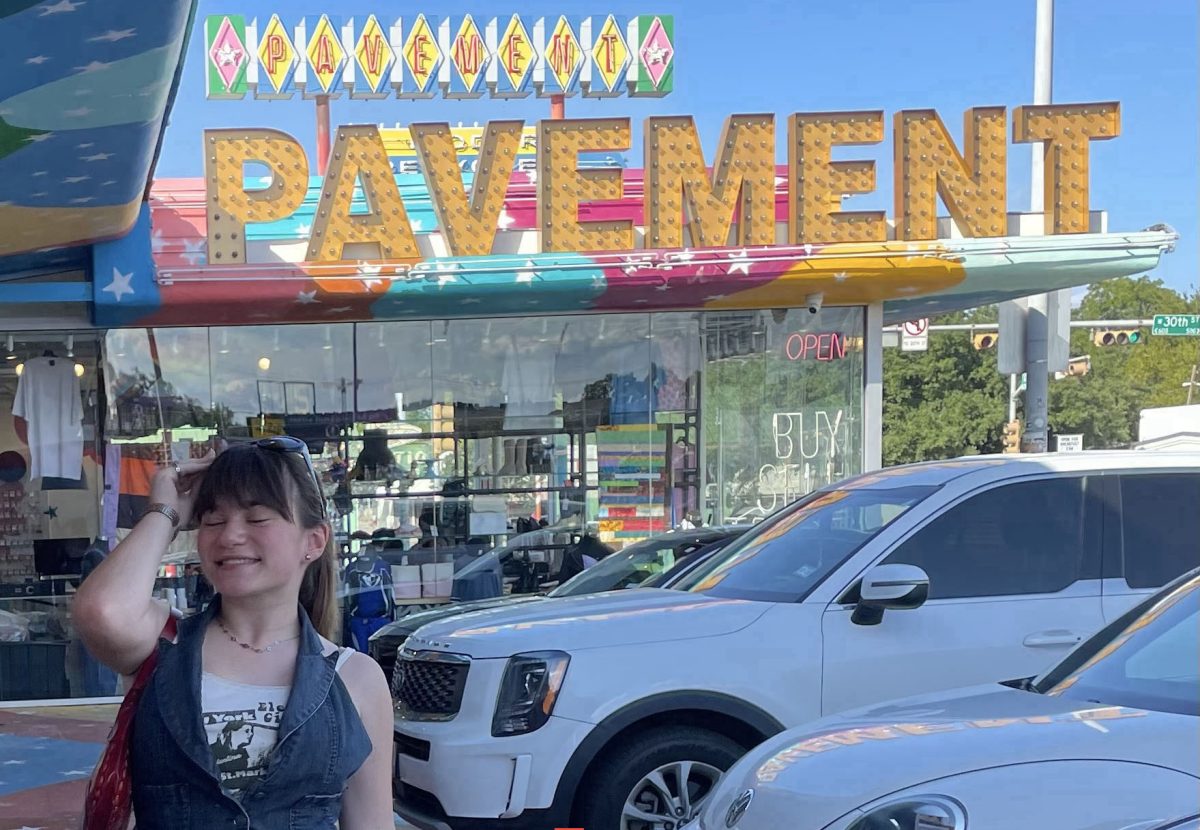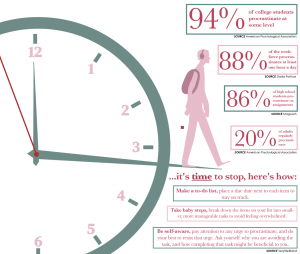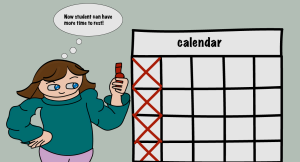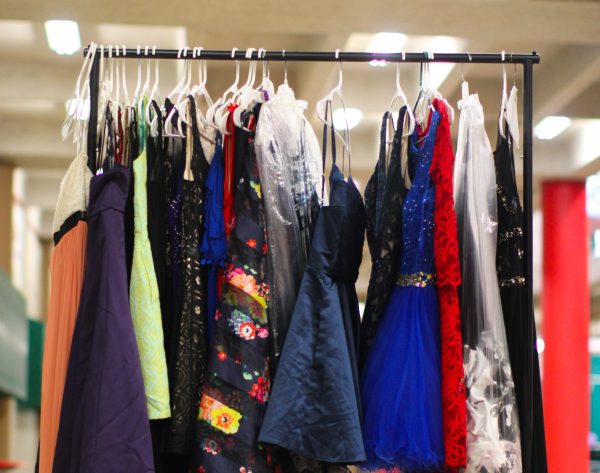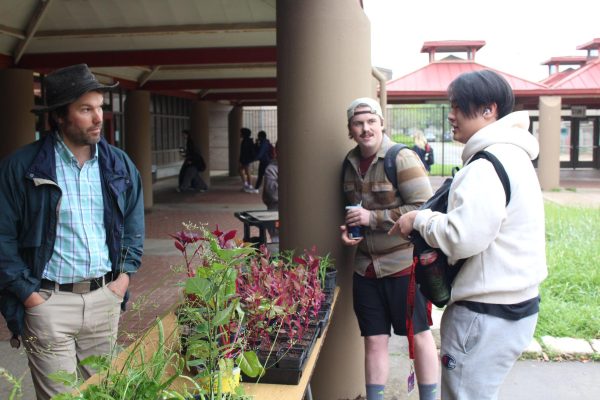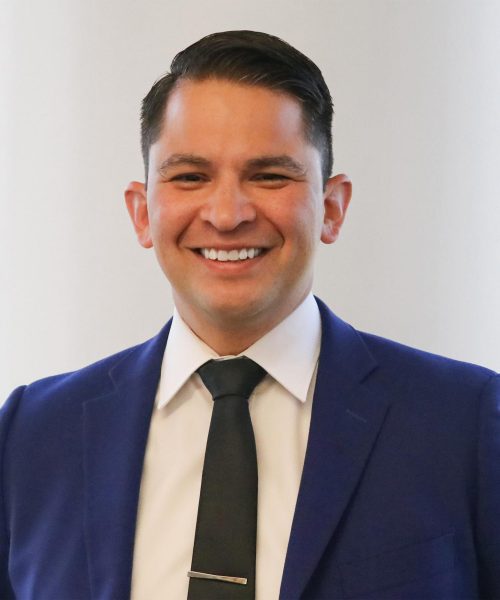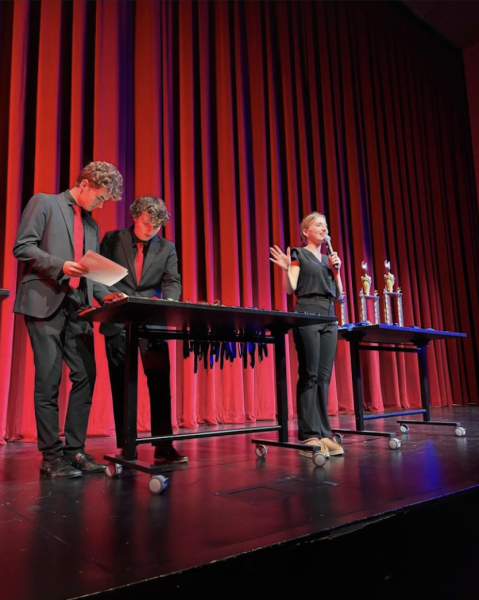Spanish and French Honor Society volunteer at a shelter for women and their children
Sophomore Cristina Canepa laughs alongside two children as they paint the sidewalk with chalk. When a student under 18 volunteers at the family shelter, they must have an adult present. *Identities of the non-high school students have been withheld for privacy reasons.
January 30, 2020
The joyous sounds of a child’s laughter fill the air as a young boy attempts to score a soccer goal on a teen peer. Quickly, the ball approaches the goal until it escapes the grasps of the teen and hits the back of the net as the young boy erupts in cheers. At a local family shelter, these interactions between high schoolers and kids have been encouraged as an act of community uplift.
Posada Esperanza, a branch of the nonprofit Casa Marianella, is a family shelter that aims to support new immigrant mothers and their children in the Austin area.
“We work with the families to get their kids enrolled in school, to find medical insurance, get doctors appointments, apply for jobs, and eventually apply for apartments or other housing programs,” Family Advocate Stacey Eyman said. “Each family has different needs, so when something comes up along the way, we are able to help.”
Recently, the French and Spanish Honor Societies have begun to volunteer at the shelter as part of their goal for increased community service.
“This year is our first year we’re trying to make a point of every month doing something for them or with them, and at this point, we go once a month and visit the families at Posada Esperanza,” Spanish Honor Society sponsor Amanda Walsh said. “It makes me hopeful and excited that I live in an area where there are people organized to help others from not just our own community but from around the world, and I am looking forward to continue to work with them.”
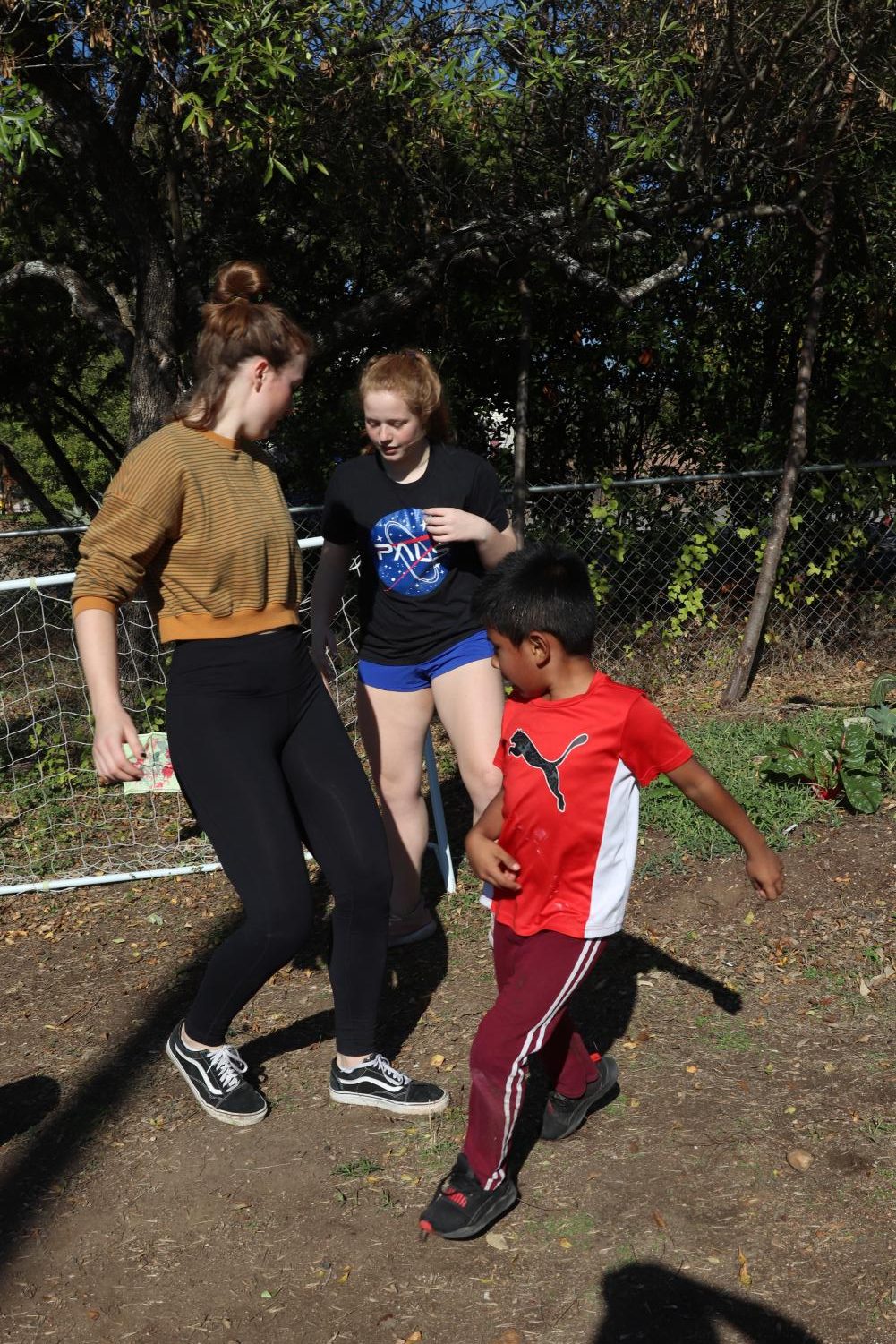
Seniors Eden Reichert and Sarah Israel try to block a young boy from scoring a goal. Volunteers at Posada Esperanza are encouraged to interact with the residents to build relationships and community. *Identities of the non-high school students have been withheld for privacy reasons.
Eden Reichert, a member of French Honor Society, volunteered at the shelter with fellow members of the two groups on Saturday, Nov. 9.
“At Casa Marianella, we played with all the kids, helped with yard work, and cleaned around the house,” Reichert said. “Helping at Casa Marianella made me feel good to know that I was able to help out in any way I could for these families.”
Currently, Posada Esperanza is a collection of four properties in East Austin that provide a home to 14 mothers and around 30 children.
“Some of the biggest volunteer opportunities at Posada Esperanza are helping tutor kids for homework, practicing English, doing some outings to the park, and then helping with general cleaning or organizing here at the houses,” Eyman said. “It makes me very excited because I see the positive interactions happening between the residents and the volunteers here.”
When she volunteered with Posada Esperanza, sophomore Cristina Canepa spent time with the residents and completed needed yard work.
“I really enjoyed volunteering at Casa Marianella because the kids were energetic and I’m glad that we were able to hang out with them,” Canepa said. “The families were also welcoming, and I am happy that we could help them out in whatever way we could.”
For the 2019-2020 school year, Casa Marianella and Posada Esperanza are Spanish Honor Society’s non-profits of choice.
“It’s pretty cool for students to use their language and knowledge of Spanish in their community to help support the Hispanic community and promote what they stand for,” Walsh said. “The organization is serving many people in Austin, and we really believe that what they’re doing is good.”
When the organization was founded in 1986, the shelter operated to care for survivors of the Salvadoran War; however, today Casa Marianella serves people from over 40 countries.
“We have kids come to us every day to look at our calendar for when volunteers are coming,” Eyman said. “It’s been really fun to see volunteers get kind of embraced into the community at Posada.”
Canepa believes that it is important for high schoolers to volunteer in their community in order to expand their cultural knowledge and exposure to diversity.
“I think that high schoolers get a better perspective on reality from community service,” Canepa said. “We can learn the importance of helping others and doing our part in supporting the members of our community that we don’t necessarily interact with every day.”
According to Eyman, if someone wants to get involved with the organization, the best way is to email [email protected].
“I just feel fortunate that I have a community of students who want to make a change in the world and connect with their community,” Walsh said. “It makes me very proud to be their teacher.”
According to casamarianella.org, the organization’s eventual goal is that all immigrants arriving in Austin “will have safe housing and access to the services they need to be successful.”
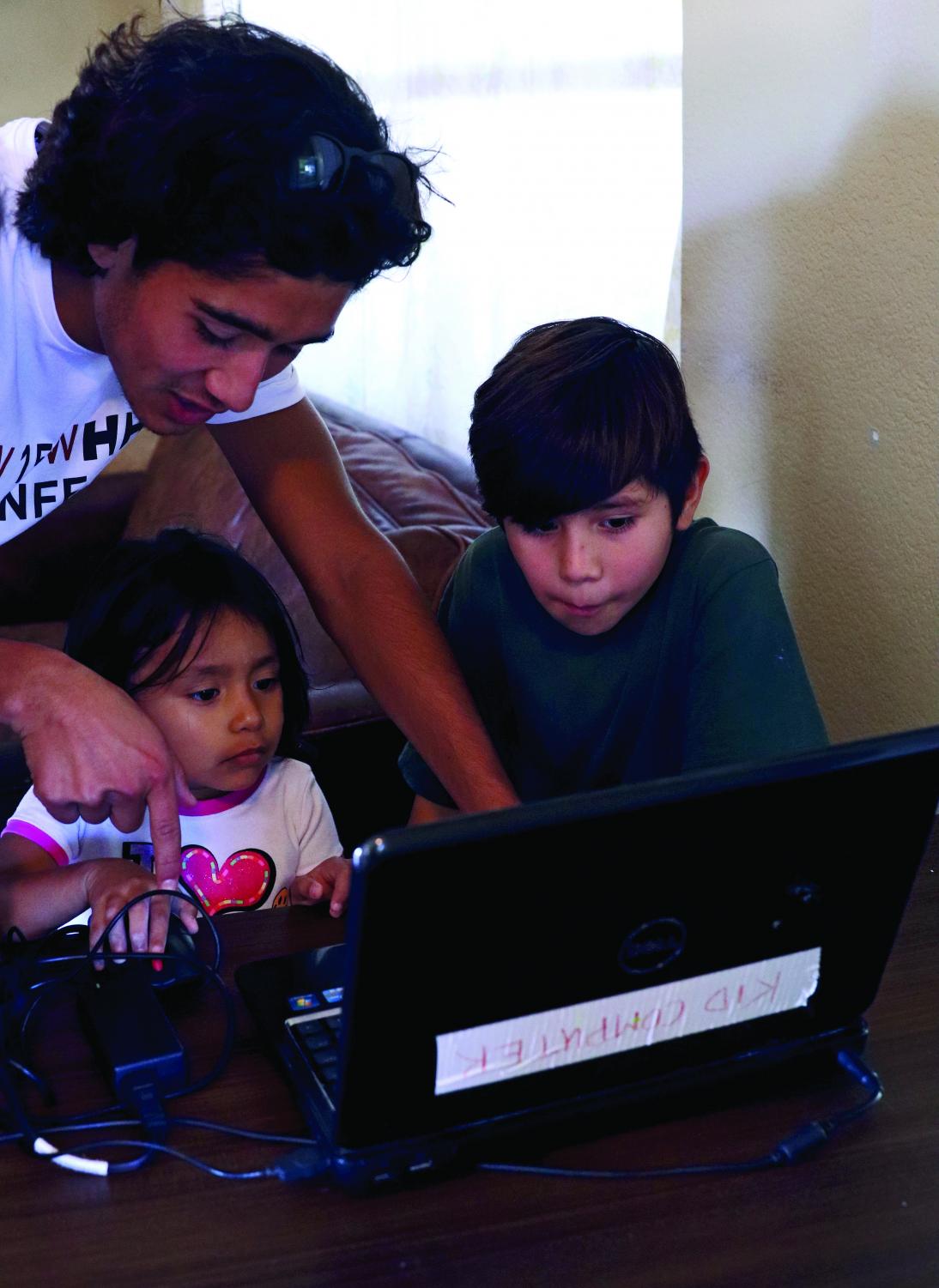
SERVICE WITH A SMILE: Senior Carlos Canepa leads two kids in a computer lesson. The shelter uses volunteers to provide academic tutoring services for their residents. *Identities of the non-high school students have been withheld for privacy reasons.
“There is a big need for housing, especially for newly arrived immigrant populations, and I think we are looking to fill that need with increased capacity,” Eyman said. “For now, we have volunteers that are updating some of our rooms for us and we are looking into building a new shed for increased space.”
In order to expand their interaction with Casa Marianella, the Spanish Honor Society plans to have a donation drive in the Spring for the organization.
“By serving at Posada Esperanza, there is more than one lesson that can be learned from students opening up their mind to understand another culture or struggle that somebody’s going through,” Walsh said. “They get to learn what it means when somebody travels far to escape, to seek hope and a new future.”
According to casamarianella.org, Posada Esperanza translates to “resting place of hope” in English.
“I think the best way to be involved in your communities is to start with what’s close to you and what you care about,” Eyman said. “If immigration and Posada Esperanza interests you, then that is awesome. However, we have a lot of community partnerships, so if you work in a different area, it can help the whole community.”


